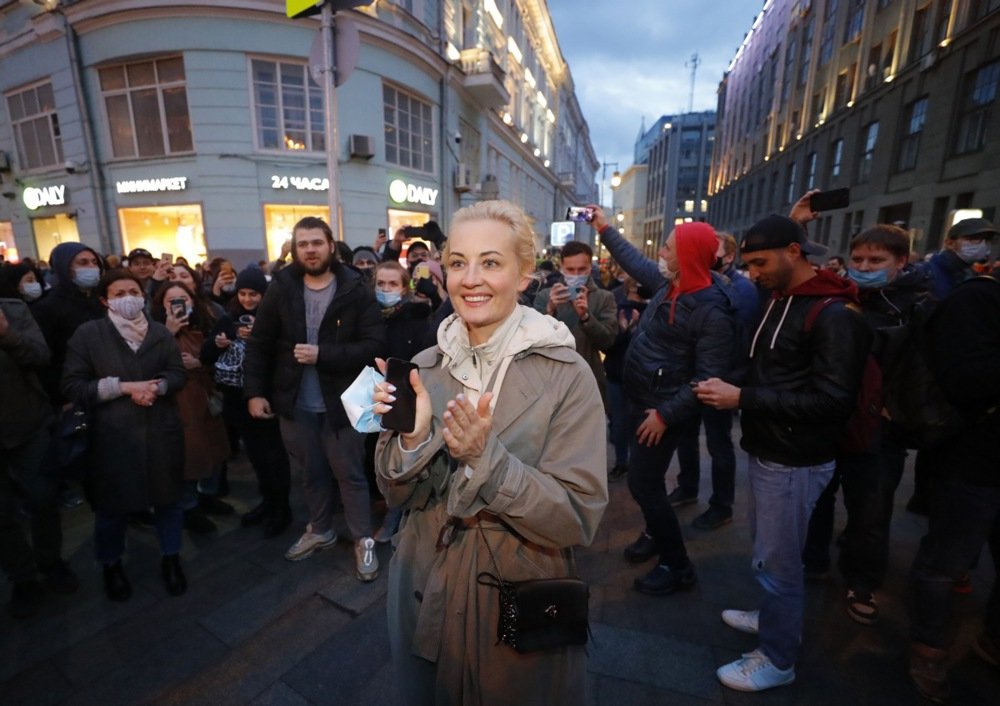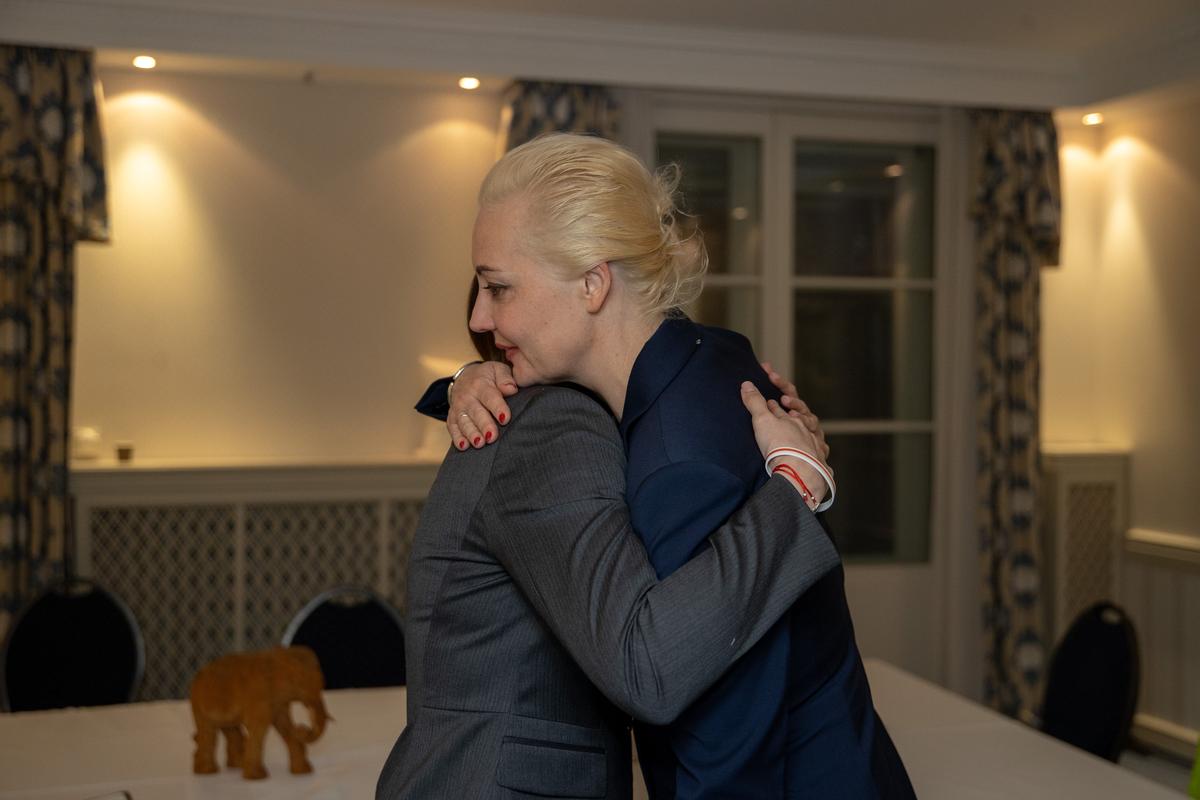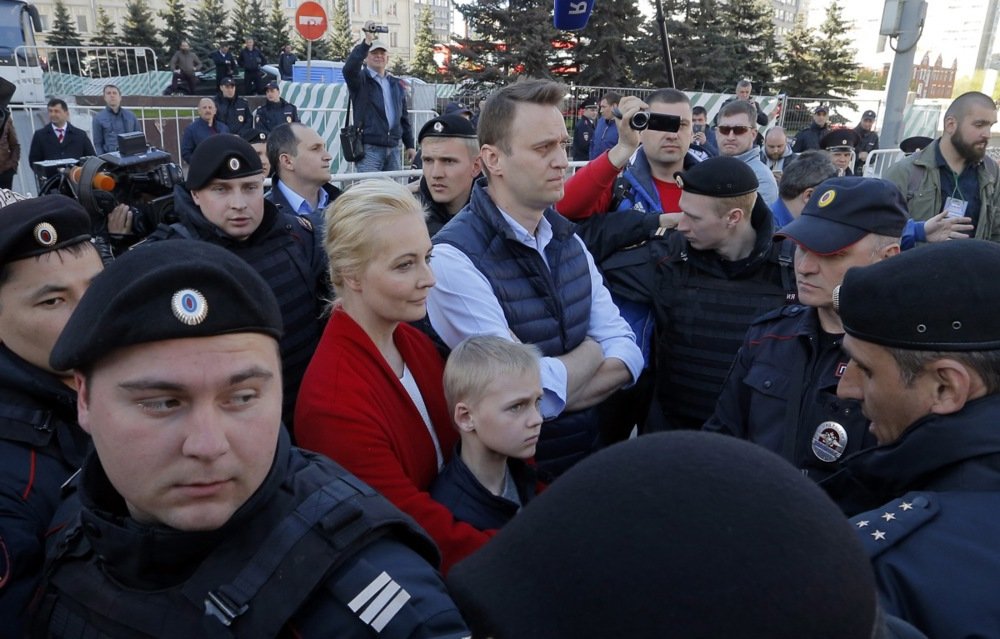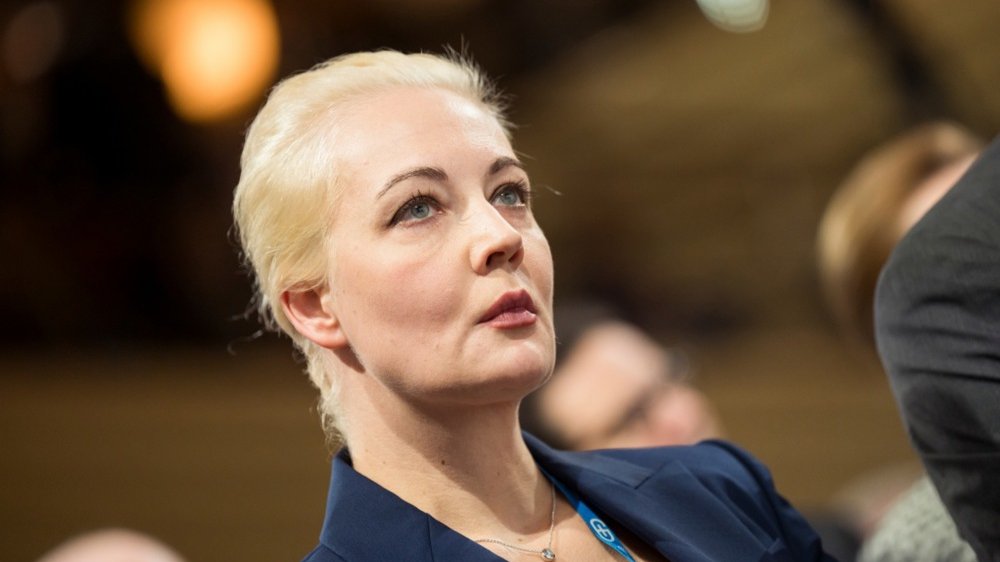Political analysts have long predicted that Yulia Navalnaya would one day have her own political career, and she was even mooted as a possible presidential candidate after Alexey Navalny was blocked from standing in the 2018 election. Until now, however, Navalnaya has preferred to remain in the background.
That has now all changed since the announcement of her husband’s death in captivity on Friday, and on Monday Navalnaya pledged to continue her late husband’s work in an emotional video message.
Belarusian opposition leader Sviatlana Tsikhanouskaya and political analysts Fyodor Krasheninnikov, Margarita Zavadskaya and Dmitry Oreshkin spoke to Novaya Europe about how they view Navalnaya’s prospects for leading Russia’s fragmented opposition.
‘A new, powerful figure has emerged’
Navalnaya studied international economic relations, worked abroad after graduating, and worked in a bank, according to a 2021 biography, marrying Alexey Navalny in 2000. Yulia later defined her role as “being in charge of the home and bringing up the children”, the biography said.
In 2017, the Central Electoral Commission (CEC) rejected Navalny’s candidacy to run in the 2018 Russian presidential election. Journalist Ksenia Sobchak promptly suggested nominating his wife in his place, though Alexey was quick to reject the idea.
For Navalnaya to take on her late husband’s mantle as the de facto leader of Russia’s opposition, she would simply require the agreement of its other leading figures, says political scientist Fyodor Krasheninnikov, calling her a “new, interesting, powerful figure” around whom those unwilling to unite around other Navalny associates could now coalesce.

People applaud Yulia Navalnaya during an opposition rally in Moscow, April 2021. Photo: EPA-EFE/SERGEI ILNITSKY
“Many might now be willing to change their minds and compromise,” he said, adding that Navalny’s opponents were likely to remain quiet for the time being before they began attacking Yulia with the same vigour.
Believing it premature to talk about Navalnaya as the leader of the Russian opposition, political analyst Dmitry Oreshkin questions the use of the very word “opposition” in relation to Russian politics today, arguing that those opposed to the Russian authorities would better be termed dissidents.
“Calling Yulia the leader of the opposition would be wrong, just as it was wrong to call Alexey Navalny that. He was the most popular and worthy figure among those who came out against the authorities. He was the leader of a moral protest, but not an organisation that could claim power in today’s Russia. … Sadly, in Putin’s Russia, only Yevgeny Prigozhin could have claimed the role of opposition leader, because he had real political resources,” Oreshkin said.
Political scientist Margarita Zavadskaya called Navalnaya’s decision to step up “tactically and strategically justified”, describing herself as in awe of both Yulia’s decision and her resilience.
“The opposition really needs a figure with moral authority comparable to that of Navalny himself. If people were willing to rally around Nadezhdin and Duntsova,” she said, referring to two little-known opposition candidates who attempted to stand in next month’s election, “imagine the opportunities Yulia has.”
Compare and contrast
In 2020, Belarusian blogger and activist Syarhey Tsikhanouski was arrested and left unable to register his candidacy in the country’s presidential election. His wife, Sviatlana, then became a presidential candidate in his stead. Syarhey was detained at a protest in support of his wife’s candidacy.
Official Belarusian CEC statistics gave Tsikhanouskaya about 10% of the vote, while incumbent Alexander Lukashenko won in a landslide. Anti-government protests broke out and Tsikhanouskaya was forced to flee to neighbouring Lithuania. Syarhey was sentenced to 18 years in prison on multiple charges and in 2023, Sviatlana was sentenced to 15 years in prison in absentia for “conspiracy to seize power unconstitutionally” and for “public calls to seize power and commit other acts aimed at harming the national security of Belarus”.
The two women have frequently been compared by the media and Tsikhanouskaya has shown solidarity with Navalnaya ever since her late husband was put on trial.
“When the authorities put our husbands in prison for their activism and for wanting to improve the lives for people in our countries, all we could do as their wives was take their place and support them,” Tsikhanouskaya said in a 2021 interview. When news broke of Navalny’s death, Tsikhanouskaya met Navalnaya and expressed her condolences.

Tsikhanouskaya meeting Navalnaya in Munich on Friday. Photo: Sviatlana Tsikhanouskaya on X
Tsikhanouskaya told Navalnaya how strong she was, she later told Novaya Europe. Regarding comparisons between the two, she said that both their husbands “challenged dictators and suffered the consequences”.
“I respect her decision to continue her husband’s work. Of course, the situations in Belarus and Russia are different. In Belarus, elections were held in 2020, at which I was supported by the majority of voters, and it was this that gave me the right and opportunity to represent the Belarusians.”
Tsikhanouskaya said it wasn’t down to her to say whether Navalnaya could lead the Russian opposition or not, stressing that the decision was one for the Russian opposition itself.
“I think many people want to hear the voice of a non-Putin Russia, a Russia that respects its neighbours, their sovereignty and identity, against imperialism in any form,” Tsikhanouskaya said.
Krasheninnikov rejected any comparison between Navalnaya and Tsikhanouskaya, saying he saw no parallels between their fates.
"Yulia is quite unlike Tsikhanouskaya — she was never a quiet housewife with no involvement in politics. Despite the fact that she was never in the foreground, she was by Alexey’s side throughout his political career,” Krasheninnikov said.
However, Zavadskaya believes that Yulia’s story “in a broad sense” has much in common with other cases of widows stepping into the shoes of their murdered husbands.
“This is similar to Tsikhanouskaya, though unlike Sviatlana, Yulia will have to both use the moral capital her husband had built up and become a politician herself, and in extremely difficult circumstances. By going down this path, she faces the same risks as Alexey, especially if she is successful,” Zavadskaya said.

Alexey and Yulia Navalny attend a protest rally with their son Zakhar in Moscow, May 2017. Photo: EPA/MAXIM SHIPENKOV
Women’s protest
Though it wouldn’t be fair to call either Navalnaya or Tsikhanouskaya politicians by default, Oreshkin says, he said that certain analogies could be drawn between them and other women in politics.
“As Putin eliminates his male opponents, women take over the protest.”
“If it wasn’t for Marina Litvinenko, the UK investigation into her husband’s murder would never have come to court. Boris Nemtsov was murdered and now his daughter, Zhanna, is trying to carry on his work as best she can and also runs the Nemtsov Foundation. Sviatlana Tsikhanouskaya, Maria Kalesnikava, Marina Ovsyannikova, Yevgenia Kara-Murza and other women are all fighting these monstrous regimes in different ways,” Oreshkin said.
He noted that while Navalny’s goal had always been to take over the reins of power, Navalnaya’s objectives were less clear, for now at least. He thinks she probably wants to “punish the killers”, which he sees as a very human motivation that could work in her favour.
“Putin has ensured that more people have died in recent years than have been born,” Oreshkin said. “That will continue for as long as there’s a war going on. Who can stop him? Not the men, by the looks of it. Maybe women will be able to?”
Join us in rebuilding Novaya Gazeta Europe
The Russian government has banned independent media. We were forced to leave our country in order to keep doing our job, telling our readers about what is going on Russia, Ukraine and Europe.
We will continue fighting against warfare and dictatorship. We believe that freedom of speech is the most efficient antidote against tyranny. Support us financially to help us fight for peace and freedom.
By clicking the Support button, you agree to the processing of your personal data.
To cancel a regular donation, please write to [email protected]

